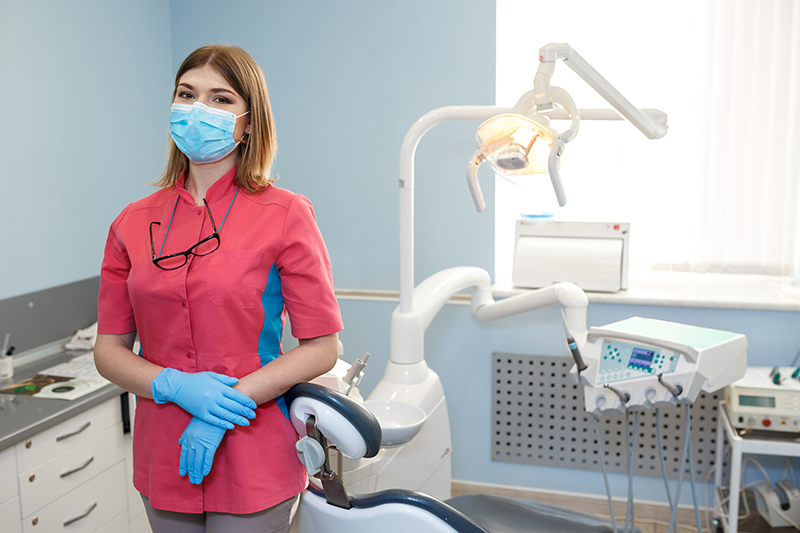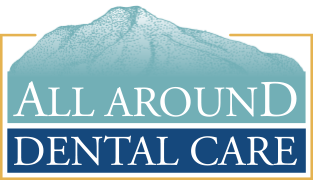
There is more than one type of dental procedure that may be casually referred to as a cleaning. For example, there is a regular cleaning & then there is what is referred to a deep cleaning. It’s important to understand that there is a big difference between these procedures & implications that each of these procedures have when it comes to your oral health.
Regular Cleaning or Prophylaxis
A regular cleaning, which is called prophylaxis by dental professionals, is what most people think of when they think of going to the dentist for a checkup. Prophylaxis involves removing plaque, calculus & stains from teeth. (Plaque is a sticky substance that builds up on teeth as a byproduct of bacteria feasting on the food you eat. Calculus, also known as tartar, occurs when plaque & minerals in your mouth harden.) A dental hygienist or a dentist uses a specialized cleaning device, called an ultrasonic scaler, to remove plaque & calculus. This cleaning occurs only on the visible part of the tooth, known as a the crown.
Regular cleaning is only recommended for patients who have generally good oral health & do not suffer from bone loss or gum problems (bleeding, recession, infection, etc.)
Scaling & Root Planing or Deep Cleanings
Root planing is a procedure that involves removing tartar, bacteria, toxic deposits from the root of a tooth, all the way down to where gum & bone meet. While it is sometimes casually referred to as a “deep cleaning”, you should know that this treatment is quite different from prophylaxis. This procedure is required as a treatment for periodontal disease or periodontitis (commonly called gum disease, though it also affects the bone).
Many people can have periodontal disease & not even know it. Symptoms of the disease include bleeding gums, bad breath, teeth that look longer due to recessed gums, & swollen or red gums. However, many people do not notice any symptoms at all. That’s why it may come as a surprise when your dentist recommends scaling & root planing instead of a regular cleaning. It’s important to understand that this procedure is vital to getting periodontal disease under control & avoid future tooth loss, though other procedures including surgery may be required to treat the disease.
Periodontal Maintenance
Once you have been diagnosed with periodontal disease & have undergone scaling & root planing, periodontal maintenance is what you can think of as taking the place of prophylaxis in your dental care routine. Rather than just addressing the just crowns of your teeth as in prophylaxis, periodontal maintenance also cares for your tooth roots, gums & bone. In other words, think of it as cleaning & maintenance for the tissues affected by your periodontal disease. The frequency of your periodontal maintenance appointments depends on your individual oral health condition & will be determined by your dentist.
